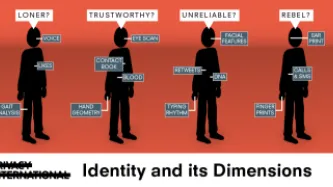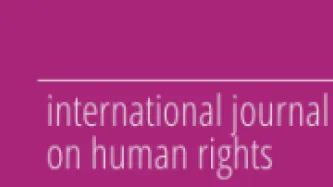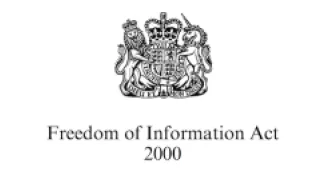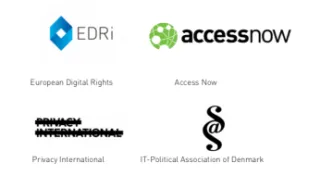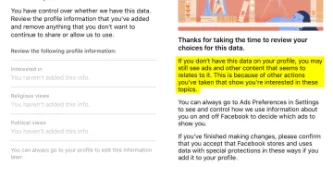Advanced Search
Content Type: Long Read
National and International civil society organisations (CSOs) play vital roles in many aspects of our societies as watchdogs of state powers, as representatives of the voices of the people, as experts to inform and educate an array of stakeholders.
One of our key lessons learned from three decades of work, including 10 years with the Privacy International Networkto build a global privacy movement,promoting and advocating for the highest privacy and data protection safeguards has been…
Content Type: News & Analysis
Creative Commons Photo Credit: Source
Just about everyone in Washington has found something to dislike about the tech industry: Democrats especially, are worried about foreign interference in the 2016 election — meanwhile some Republicans are more concerned about bias against conservatives of platforms and on top of it all President Trump has been tweeting about antitrust and competition.
Privacy International is a vocal critic of data exploitation more generally, and the systemic…
Content Type: Long Read
The Sustainable Development Goals (SDGs) are the United Nations-led initiative to define the development agenda. Building on the eight Millennium Development Goals, the SDG’s 17 goals – and the 169 targets – serve as an opportunity to tackle many of the most pressing issues in the world today. The SDGs are also explicitly grounded in human rights. Goal 16 on “peace, justice, and sustainable institutions” aims to “Promote peaceful and inclusive societies for sustainable development, provide…
Content Type: News & Analysis
This post was written by William Marks, a former volunteer at Privacy International.
The right to privacy is central to the protection of human dignity, and supports and reinforces other rights, such as the right to freedom of expression and association. Privacy International, supported by the International Human Rights Clinic at Harvard Law School, recently submitted a joint stakeholder report to the United Nations Human Rights Council regarding New Zealand’s protection of the right to…
Content Type: News & Analysis
Around the world, from North America to Europe and Asia, governments are starting to roll out smart meters. While the technology promises increased energy efficiency through greater consumer control over energy consumption, smart meters also raise serious privacy concerns. Smart meters collect energy usage data at high frequencies - typically every five, fifteen or 30 minutes. That level of granularity reveals how much electricity is being used in a home and when, which in turn can paint an…
Content Type: News & Analysis
This month Brazil adopted a new data protection law, joining the ranks of more than 120 countries which have adopted such legislation, providing individuals with rights against the exploitation of their personal data. But after a veto from the Brazilian president, the law lacks an independent authority in charge of its application, which can severely undermine its impact.
When drafting data protection bills, one of the most important and often politically contentious issue tends to be their…
Content Type: Long Read
Privacy International’s new report shows how countries with powerful security agencies are training, equipping, and directly financing foreign surveillance agencies. Driven by advances in technology, increased surveillance is both powered by and empowering rising authoritarianism globally, as well as attacks on democracy, peoples’ rights, and the rule of law.To ensure that surveillance powers used by governments are used to protect rather than endanger people, it is essential that the public,…
Content Type: Long Read
The idea of a “smart city” is primarily a marketing concept, used to sell data-intensive technologies under the pretext of improving the functioning of cities. This could include injecting ‘smart’ tech into delivering services, public safety, environmental monitoring, traffic control, among other possible applications.
One in particular aspect of smart cities has been consistently problematic: how these projects are used to boost law enforcement and policing under the guise of public safety.…
Content Type: News & Analysis
By Digital Rights Foundation, Pakistan
What is a safe city?
The answer to this question is not uniform; in fact it varies according to who you ask.
In a focus group conducted by Digital Rights Foundation in May of last year, consisting of women rights activists from across Pakistan, the answer meant imagining a city that was not only safe for women, in terms of their physical safety, but also welcoming for women and non-binary individuals in its architecture and facilities. Women expressed…
Content Type: Long Read
Creative Commons Photo Credit: Source
UPDATE: 30 July 2019
Privacy International has identified the following:
Two RAB officers received approval to travel to the USA in April 2019 for training on “Location Based Social Network Monitoring System Software for RAB Intelligence Wing”
Three RAB officers received approval to travel to Russia in August 2017 to participate in user training of “Backpack IMSI Catcher (2G, 3G, 4G)” paid for by Annex SW Engineering, a…
Content Type: News & Analysis
This piece originally appeared here.
Creative Commons Photo Credit: Source
Tech competition is being used to push a dangerous corporate agenda.
High-tech industries have become the new battlefield as the United States and China clash over tariffs and trade deficits. It’s a new truism that the two countries are locked in a race for dominance in artificial intelligence and that data could drive the outcome.
In this purported race for technological high ground, the argument often goes, China…
Content Type: Long Read
Creative Commons Photo Credit: Source
In the midst of continued widespread public outrage at the US government’s brutal ‘zero-tolerance’ policy around immigration – multiple data and analytics companies have quietly avoided answering questions about their role in feeding the US Immigration and Customs Enforcement (ICE) agency’s data backbone. These companies are bidding to work with an agency that has time and time again shown itself to be a brutal and problematic.
Privacy International…
Content Type: News & Analysis
Our intervention comes on the back of mounting evidence that the South African state’s surveillance powers have been abused, and so-called “checks & balances” in RICA have failed to protect citizens’ constitutional right to privacy.
Among our core arguments are:
That people have a right to be notified when their communications have been intercepted so that they can take action when they believe their privacy has been unlawfully breached. Currently RICA prevents such notification, unlike…
Content Type: Press release
Privacy International, represented by Liberty, is challenging court decision allowing police to ‘neither confirm nor deny’ they hold certain information on IMSI catchers
Privacy rights organisation has fought for almost two years for public disclosure of records on how UK police purchase and use mobile phone surveillance technology
Privacy International has today filed an appeal challenging police forces’ refusal to disclose information on their purchase and use of IMSI catchers.
IMSI…
Content Type: News & Analysis
Photo was found here
This essay was published in The Sur International Journal of Human Rights, Issue 27, July 2018.
Abstract:
This essay focuses on elections in Kenya and analyses the use of technology and the exploitation of personal data in both the electoral process and campaigning. We only need to look to Kenya’s election history to understand why it is important. The 2007/2008 election resulted in violence that killed over 1,000 people and displaced over 600,000. The 2013 election was…
Content Type: News & Analysis
Create Commons Photo Credit: Source
Privacy International has achieved an important victory for government transparency and information access rights. This victory stems from a long-running battle with the government to obtain information about the UK police’s purchase and use of IMSI catchers. The Information Commissioner’s Office (ICO) recently issued a series of decisions, which agree with Privacy International that police forces cannot rely on a position of “neither confirm nor deny” (NCND…
Content Type: Press release
Creative Commons Photo Credit: Source
Have the police been unlawfully hacking our phones? Privacy International refers this question to Lord Justice Sir Adrian Fulford, the Investigatory Powers Commissioner
Privacy International has formally written to the UK's Investigatory Powers Commissioner about the police's use of intrusive 'mobile phone extraction' (MPE) technology, raising concerns about whether in some, or indeed in all circumstances, its use constitutes either an interception…
Content Type: News & Analysis
Last year Privacy International conducted research into information left on rental cars after they are returned. Every car we rented contained readily apparent personal information about past drivers and other passengers, including information such as their past locations, smart phone identifier, and entered locations, including a school.
Off the back of the research, PI wrote to rental companies and car-share schemes in continental Europe, the UK, and the US to enquire about the companies’…
Content Type: Press release
We found this image here.
The National Police Chiefs’ Council (NPCC) will no longer be able to operate in secret after human rights campaign organisations Liberty and Privacy International demanded it be subject to Freedom of Information laws.
The Government has now informed the organisations that it has started a process to designate the law enforcement policy-making body as a public authority subject to the Freedom of Information Act (FOIA) – meaning it will be open to public scrutiny.…
Content Type: Press release
We found this image here
The Investigatory Powers Tribunal (IPT) today held that, for a sustained period, successive Foreign Secretaries wrongly gave GCHQ unfettered discretion to collect vast quantities of personal customer information from telecommunications companies.
The judgment exposes:
· the error-ridden and inconsistent evidence provided by GCHQ throughout the case;
· the willingness of telecommunications companies to secretly hand over customer data on the basis of mere verbal…
Content Type: Long Read
Privacy International (PI) has today released a new report, 'Teach 'em to Phish: State Sponsors of Surveillance', showing how countries with powerful security agencies are training, equipping, and directly financing foreign surveillance agencies.
Spurred by advances in technology, increased surveillance is both powered by and empowering rising authoritarianism globally, as well as attacks on democracy, rights, and the rule of law.
As well as providing a background to the issue, the report…
Content Type: Press release
Privacy International has today released a report that looks at how powerful governments are financing, training and equipping countries — including authoritarian regimes — with surveillance capabilities. The report warns that rather than increasing security, this is entrenching authoritarianism.Countries with powerful security agencies are spending literally billions to equip, finance, and train security and surveillance agencies around the world — including authoritarian regimes. This is…
Content Type: News & Analysis
Privacy International and other European civil society organisations write to European member states to urge them not to water down the e-Privacy proposal. We need more than ever strong regulation to protect the security and privacy of our digital communications, to protect us from being tracked online and to ensure that all our digital devices are set up with privacy by design and by default.
Content Type: Long Read
How would you feel if you were fingerprinted by the police before you were allowed to take part in a peaceful public demonstration?
As tens of thousands of people attend massive public demonstrations across the UK today against US President Donald Trump in a ‘Carnival of Resistance’, it’s a question worth asking. Why? Because the police now deploy a range of highly sophisticated surveillance tools at public events which are just as if not more intrusive. And these technologies should be even…
Content Type: Long Read
This piece was written by PI voluteer Natalie Chyi.
Transparency is necessary to ensure that those in power – including governments and companies – are not able to operate in the dark, away from publicscrutiny. That’s why calls for more transparency are routine by everyone from civil society and journalists to politicians.
The bigger picture is often lost when transparency is posed as the only solution to shadowy state and corporate powers. For one, the term is so broadly understood that it…
Content Type: Long Read
Privacy and data protection are currently being debated more intensively than ever before. In this interview, Frederike Kaltheuner from the civil rights organisation Privacy International explains why those terms have become so fundamentally important to us. The article was first published in the newly launched magazine ROM. The interview was conducted by ROM publisher Khesrau Behroz and writers Patrick Stegemann and Milosz Paul Rosinski.
Frederike Kaltheuner, you work for Privacy…
Content Type: Long Read
Yesterday the UK's Information Commissioner's Office (ICO) - which is responsible for ensuring people's personal data is protected - announced it intends to fine Facebook the maximum amount possible for its role in the Cambridge Analytica scandal.
This decision highlights of how serious and rampant misuse and exploitation of data is. Facebook is responsible and failed to comply with data protection 101: be upfront and honest about what you are doing with people's data.
Importantly, the ICO's…
Content Type: News & Analysis
As the international cyber security debate searches for new direction, little attention is paid to what is going on in Africa. Stepping over the remains of the UN Group of Governmental Experts, and passing by the boardrooms of Microsoft struggling to deliver their Digital Geneva Convention, African nations are following their own individual paths.
Unfortunately, these paths increasingly prioritise intrusive state surveillance and criminalisation of legitimate expression online as…
Content Type: Press release
Photo credit: Forbrukerrådet
The Norwegian Consumer Council has today published a report which shows how Facebook and Google appear to push users into sharing personal data, and raises questions around how such practices are GDPR compliant.
Off the back of the analysis, Privacy International is joining NCC and several other consumer and privacy groups in Europe to ask European data protection authorities to investigate whether the companies are acting in accordance with GDPR. Copies of the…
Content Type: Press release
Privacy International, Liberty, and Open Rights Group have joined over 60 NGOs, community groups, and academics across the European Union to file complaints to the European Commission. The complaints call for the EU governments to stop requiring companies to store all communications data. The practice was ruled unlawful by the Court of Justice of the European Union (CJEU) in two separate judgments in 2014 and 2016. The UK complaint was filed by Privacy International, Liberty, and Open Rights…


